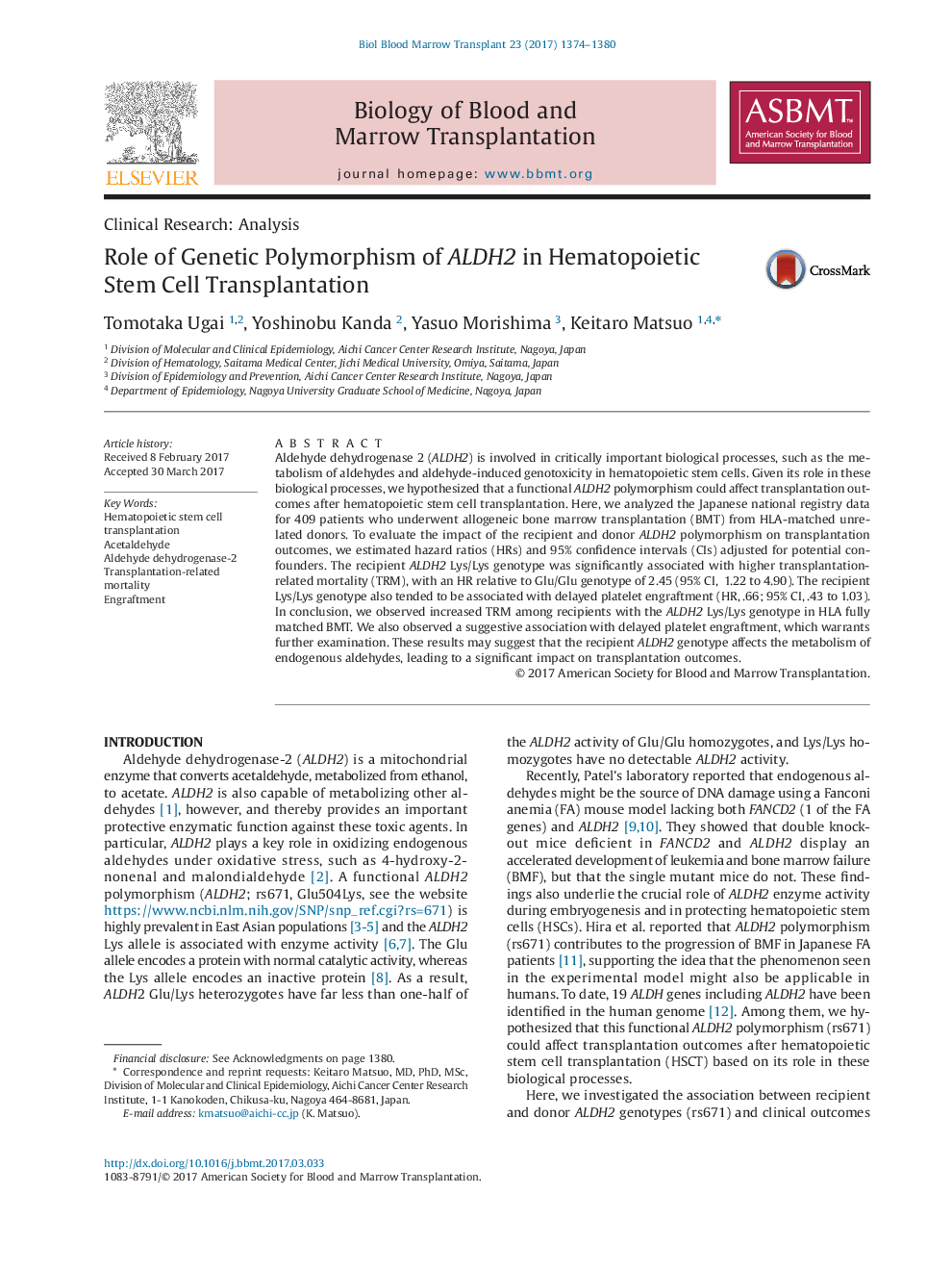| Article ID | Journal | Published Year | Pages | File Type |
|---|---|---|---|---|
| 5524124 | Biology of Blood and Marrow Transplantation | 2017 | 7 Pages |
â¢The recipient ALDH2 Lys/Lys genotype was significantly associated with higher transplantation-related mortalityâ¢This genotype also tended to be associated with delayed platelet engraftmentâ¢Our results may suggest that recipient ALDH2 genotype affects aldehydes metabolism
Aldehyde dehydrogenase 2 (ALDH2) is involved in critically important biological processes, such as the metabolism of aldehydes and aldehyde-induced genotoxicity in hematopoietic stem cells. Given its role in these biological processes, we hypothesized that a functional ALDH2 polymorphism could affect transplantation outcomes after hematopoietic stem cell transplantation. Here, we analyzed the Japanese national registry data for 409 patients who underwent allogeneic bone marrow transplantation (BMT) from HLA-matched unrelated donors. To evaluate the impact of the recipient and donor ALDH2 polymorphism on transplantation outcomes, we estimated hazard ratios (HRs) and 95% confidence intervals (CIs) adjusted for potential confounders. The recipient ALDH2 Lys/Lys genotype was significantly associated with higher transplantation-related mortality (TRM), with an HR relative to Glu/Glu genotype of 2.45 (95% CI, â1.22 to 4.90). The recipient Lys/Lys genotype also tended to be associated with delayed platelet engraftment (HR,â.66; 95% CI,â.43 to 1.03). In conclusion, we observed increased TRM among recipients with the ALDH2 Lys/Lys genotype in HLA fully matched BMT. We also observed a suggestive association with delayed platelet engraftment, which warrants further examination. These results may suggest that the recipient ALDH2 genotype affects the metabolism of endogenous aldehydes, leading to a significant impact on transplantation outcomes.
